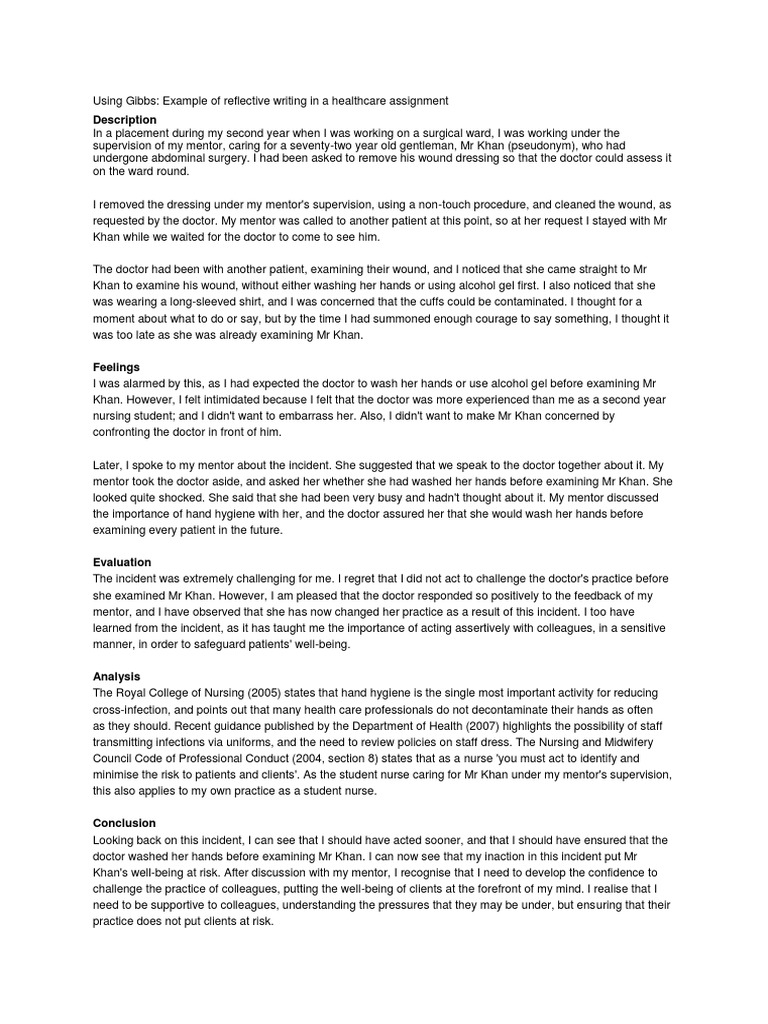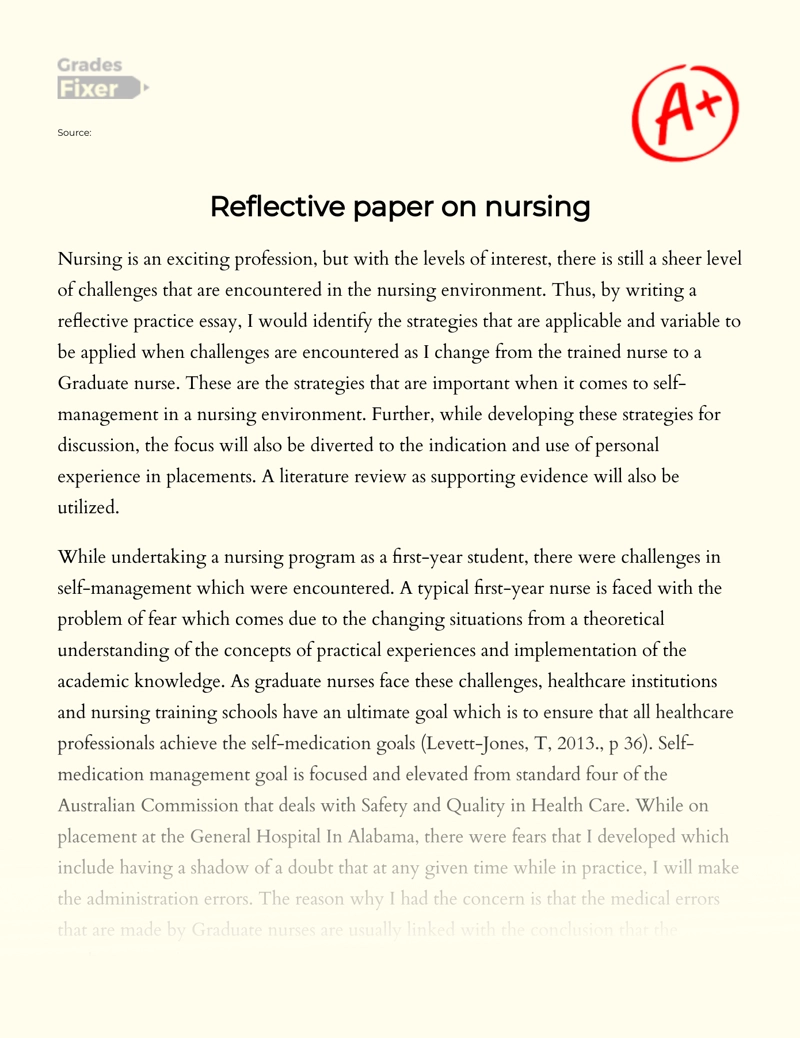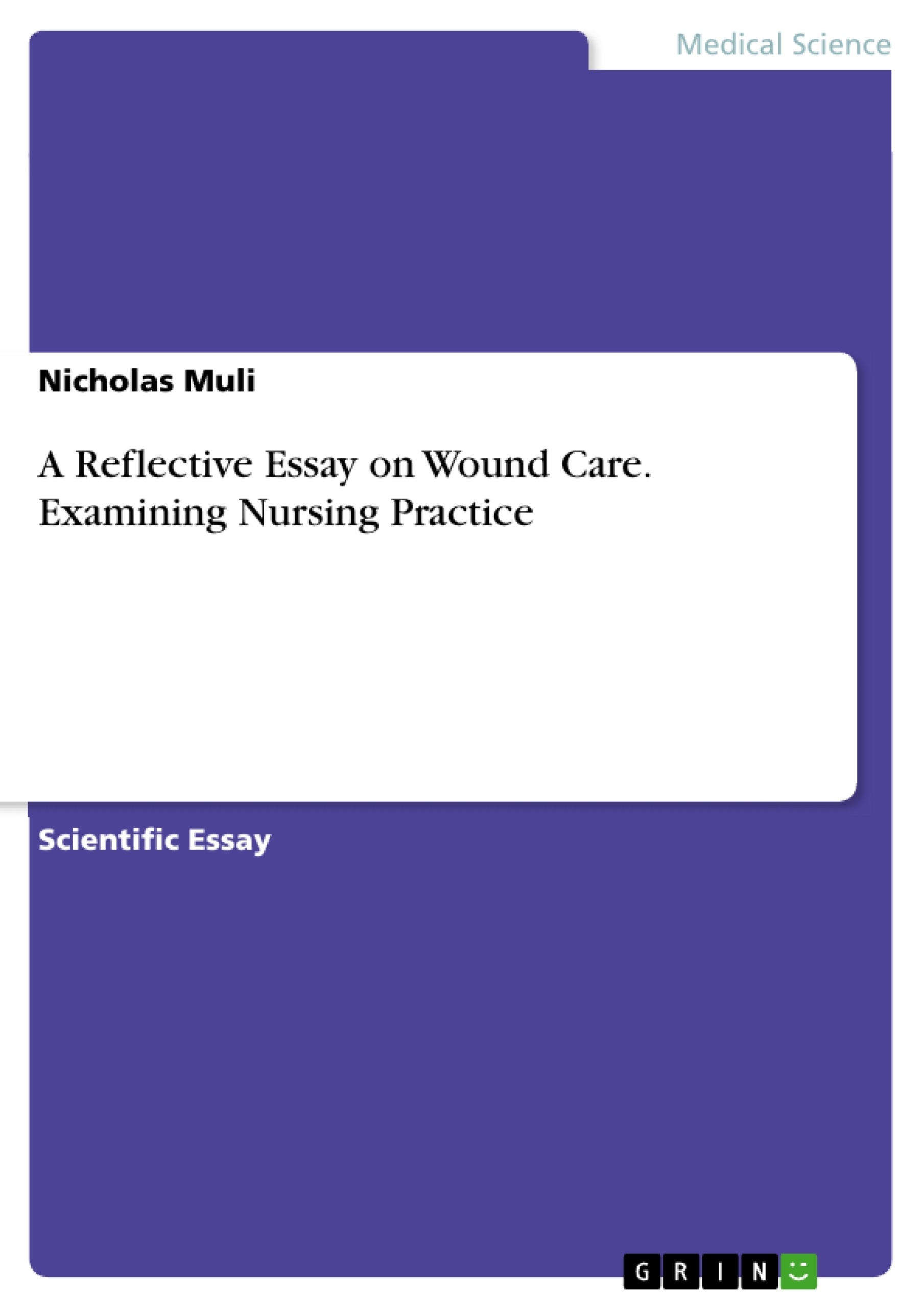Reflective writing is an essential part of the nursing profession. It involves the practice of reflecting on one's own experiences, thoughts, and feelings in order to learn from them and improve one's practice. Reflective writing allows nurses to critically analyze their own actions and consider how they could have been more effective in their care for patients. It is a way for nurses to continuously learn and grow in their profession.
There are several different models of reflective writing that nurses can use, including the Gibbs Reflective Cycle and the Kolb's Experiential Learning Cycle. The Gibbs Reflective Cycle consists of six stages: description, feelings, evaluation, analysis, conclusion, and action plan. This model allows nurses to reflect on their experiences in a structured way, starting with a description of the event or situation and moving through their emotions and evaluation of the experience, to an analysis of what happened and what could have been done differently. The final step is to create an action plan for future situations.
Kolb's Experiential Learning Cycle is another popular model for reflective writing in nursing. This model consists of four stages: concrete experience, reflective observation, abstract conceptualization, and active experimentation. This model emphasizes the importance of practical experience and the value of reflecting on that experience in order to learn and grow.
Reflective writing is an important tool for nurses because it allows them to critically examine their own practice and identify areas for improvement. It helps nurses to develop their critical thinking skills and to become more self-aware. Reflective writing can also be a useful tool for managing stress and improving self-care, as it allows nurses to process their emotions and thoughts about their work.
In addition to helping nurses to improve their practice and manage stress, reflective writing can also be a valuable tool for nursing education. By reflecting on their experiences, nurses can learn from their mistakes and improve their practice, which can ultimately lead to better patient outcomes. Reflective writing can also be a useful tool for nursing educators to assess the learning and development of their students.
Overall, reflective writing is an essential part of the nursing profession. It allows nurses to critically analyze their own practice, identify areas for improvement, and continuously learn and grow in their profession. It is a valuable tool for managing stress and improving patient outcomes, and is an important part of nursing education.





